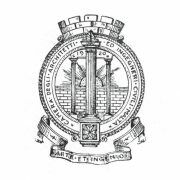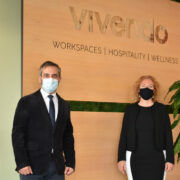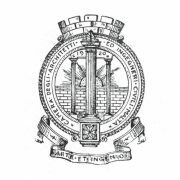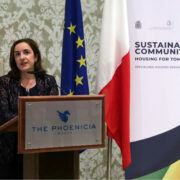DIR 01/10 | Amendments to the Tariff of Fees (Tariff K)
As you are certainly aware, your Council is currently in discussions with government on various issues that affect the profession. These issues, that formed part of a compendium titled “Towards a Renewed Profession”, were the subject of an Extraordinary General Meeting (EGM) held in April 2008 and the positions taken then were again reaffirmed, with some amendments, at the Annual General Meeting (AGM) of the 11th December 2009.
One of these issues concerns the Tariff of Fees, more commonly known as ‘Tariff K’. At the April 2008 EGM a revised Tariff of Fees was approved and this was forwarded to government with a recommendation that it should replace the current Tariff K.
At the same time that discussions were ongoing with the Ministry for Resources and Rural Affairs (MRRA) on aspects of the reform process, the transposition of the Services (Internal Market) Directive (Bill 32), which transposition had a direct bearing on Tariff K, was also being discussed. During these discussions it was made amply clear to the Ministry that the EGM of April 2008 had approved a revised Tariff of Fees and that it was the express wish of the Kamra and its members that this should replace the current Tariff of Fees.
To our surprise, in August 2009, we were informed by the Permanent Secretary at the Ministry that the Cabinet of Ministers, when discussing the transposition of the Services Directive had taken a unilateral decision to do away with the Tariff of Fees and liberalise the whole fee structure. We wrote back to the Permanent Secretary saying that we were in full disagreement with the position taken by Cabinet and requested that the latter is made aware of the Kamra’s position which was supported by an EGM of the Kamra and which position had already been made known months before to officials of the MRRA.
When the meetings with the Ministry resumed and the transposition of the Services Directive was being discussed, agreement was reached between the Ministry and the Kamra as to the way forward:
- the revised Tariff of Fees as approved by the EGM was to replace the current Tariff;
- the relative clause in Part VII of Bill 32 was to read as follows:
16 . Immediately after paragraph 19 of Tariff K in Schedule A of the principal law, there shall be added the following new paragraph:“20 (a) The foregoing provisions of this Tariff shall not prohibit a Perit and his client, from agreeing on a fee, or the basis on which the fee is to be determined which is different from that established by this Tariff, and in any such case the agreed fee or basis for determining it, not being a basis prohibited by law, shall apply, subject to the provisions of the following sub-paragraphs:Provided that in any case, a Perit shall inform his client of the applicable fee or the basis on which the fee is to be determined before the service is provided.(b) For the purposes of this paragraph, an agreement concerning fees shall be in writing”.
- In addition to the above another important clause of the same Bill was to read as follows:
14 (2) This Part shall come into force on such a date as the Minister responsible for justice may by notice in the Gazette appoint, and different dates may be so appointed for different provisions and different purposes thereof.
On the basis of the above and on the understanding that the bringing into force of sub-sections 16 and 20(a) and (b) would not occur before at least three (3) years from the publication of the Bill, the Kamra was happy to proceed. This had the full agreement of the representatives of the MRRA as well as the representative of the Ministry for Finance, the Economy and Investment. In fact the draft Bill that was presented at Parliament carried the full text as reproduced above.
To our immense disappointment, during the week commencing Monday, 25th January 2010 it came to our knowledge that the Bill as published in the Government Gazette of the 29th December 2009 did not reflect the above position as sub-section 14 (2) was amended and now reads as follows:
14 (2) This Part shall come into force upon publication of this Act.
Moreover, it was noted that the above sections, as amended, had already been incorporated as section 16 of Tariff K – Fees payable to Periti (Chapter 12 of the Laws of Malta – Code of Organisation and Civil Procedure). This effectively means that the fees that Periti can charge their clients for services rendered have been liberalised as from the 29th December 2009 and that it is the perit and his/her client that will set the level of the fee due, provided that such agreement is made in writing.
The Council of the Kamra is of the opinion that the wishes of the EGM of April 2008 and of the AGM of December 2009 have been totally ignored by government and that this goes contrary to the obligations outlined in Article 4 of Subsidiary Legislation 390.01 which states that “The Council of the Chamber of Architects and Civil Engineers (Kamra tal-Periti) shall correspond and consult with the Government and its various bodies and vice-versa on all matters concerning the profession or that may affect it in any way, as well as on other subjects of public interest”. We consider that the matter regarding fees to be paid to the perit is of fundamental relevance and of interest to both the profession and the public and that the respect and application of the intents of section 4 of the Subsidiary Legislation have been totally flouted.
I wish to inform you that the Council of the Kamra has discussed the situation at a formal Council meeting and has unanimously authorised me to write to the Prime Minister, expressing our disappointment at how the matter has been treated and requesting an urgent meeting with him. An appropriate letter was sent to the Prime Minister on the 3rd February 2010.
Depending on the outcome of the discussions with the Prime Minister it is our intention to hold an Extraordinary General Meeting of the Kamra.
In the meantime, whilst advising each Warrant Holder to familiarise himself/herself with the amendments that have been incorporated and enacted as part of Chapter 12 of the Laws of Malta, we are also obliged to draw your attention to the fact that clause 2 of the First Schedule of the “Code of Professional Conduct” is still binding as it has not been amended or repealed. This states that:
“A member is remunerated solely by his professional fees payable by his clients and/or by his salary payable by his employer. He is debarred from any other source of remuneration in connection with the works and duties entrusted to him. It is the duty of a member to uphold and apply the scale of professional charges payable to architects and civil engineers as per Tariff K of Schedule A to the Code of Organisation and Civil Procedure”
In this scenario and in order to avoid possible disputes with clients, it is important that:
- before any service is provided, the perit should inform the client of the applicable fee or the basis on which the fee is to be determined;
- irrespective of whether the scale of fees as set out in Tariff K is to apply, or whether a fee which is different from the scale of fees set out in the Tariff is to apply, an agreement in writing should always be entered into.
Following from the above, it is needless to state that failing an agreement in writing the scale of fees as set-out in Tariff K will automatically apply.
Finally we wish to draw your attention to the fact that the amendment to Tariff K became effective as from the 29th December 2009 and is not retro-active. In this respect, any commission entered into prior to that date should still be regulated, without fail, by the scale of fees as stipulated in Tariff K before it was amended.
The Council wishes to state that it has always recommended that the proposed reform process has to be treated in a holistic and consolidated manner, supported by a full consultation process, and not dealt with in a piecemeal manner as government seems set to adopt.
Vincent Cassar
President







